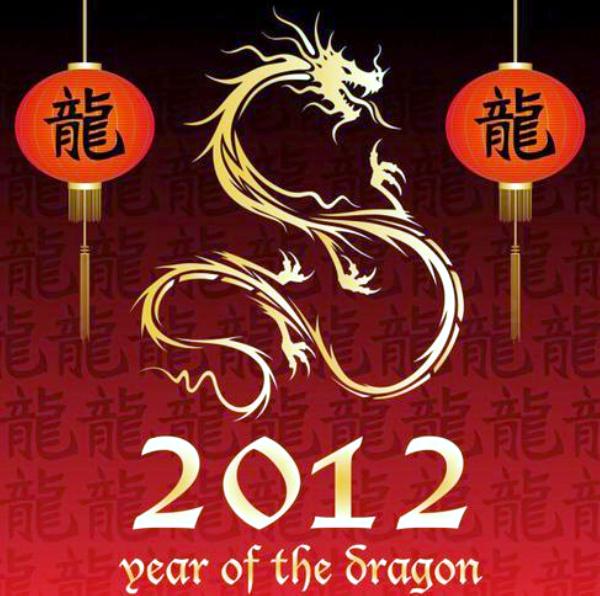My family & I would like to wish everyone a bountiful, wonderful, beautiful Chinese New Year , one which is blessed with good fortune, peace and harmony. Gong Xi Fa Cai – May this Dragon Year be your best year yet!
-Manivannan-
ABOUT THE CHINESE NEW YEAR:
A Chinese proverb states that all creations are reborn on New Year’s day. The Chinese New Year is a celebration of change … out with the old and in with the new!
The Chinese New Year falls on a different date each year because it is based on a combination of lunar and solar movements. It usually occurs in January or February. On January 23, 2012, Chinese communities around the world will ring in the Year of the Dragon (Year 4710).
In theFar East, this is also the end of winter and the beginning of spring. Farmers take this opportunity to welcome spring as they plant for the new harvest. Thus, the Lunar New Year is also called the Spring Festival.
The events that occurred during New Year’s Day may impact your life for the rest of the year. Be careful in your actions. Be selective with what you eat. Greet people who will bring you joy. To ensure a prosperous and healthy year, you should enhance and stimulate positive energy flow at home, at your business and at work.
Everything associated with the New Year’s Day should represent good fortune. To single people, good fortune may mean love and romance. Good fortune may mean good grades to students, children for families, jobs for the unemployed and health for the sick.
To help you find your fortune in the New Year, here are some tips about Chinese New Year traditions and customs which I got from www.familyculture.com.
BEFORE NEW YEAR’s EVE:
The celebration actually starts on New Year’s Eve with the reunion dinner. By New Year’s Eve, you should have done the following:
- Clean the entire home to get rid of all the things that are associated with the old year.
- Put away all brooms and brushes.
- Pay all your debts.
- Resolve differences with family members, friends, neighbours’ and business associates.
- Buy the following:
- – red money envelopes
- – oranges and/or tangerines
- – circular candy tray
- flowers (especially plum blossom, peach blossom, water lily)
- a new set of clothes and shoes for children, preferably something red or orange.
- Get new dollar bills from the bank. Insert the new dollar bills into the red envelopes. Now the red envelope is called a lee see or lucky money envelope or ang pow.
Note: Very few modern families follow all the “cleaning” traditions.
ON NEW YEAR’s EVE:
- Get together with close family members (not including married daughters and their families) for the “reunion” dinner.
- Pay respect to ancestors and household gods. Acknowledge the presence of ancestors because they are responsible for the fortunes of future generations.
- Open every door and window in your home at midnight to let go of the old year.
ON NEW YEAR’s DAY:
- Decorate your home with symbols of good fortune. Here are some suggestions:
- – Colors: Bright red (happiness); gold/orange (wealth & happiness).
- – Fruits:Orangesand tangerines (good health & long life); tangerines with leaves intact (long lasting relationships; fruitful and multiply as in having children); persimmons (happiness and wealth).
- – Circular candy tray (candy for sweet and circular for togetherness).
- – Flowers: If flowers bloom on New Year’s Day, it will be a prosperous year.
- – Red banners or couplets with New Year wishes and symbols of good fortune in gold.
- Here are some suggestions for food:
- – Jai – a combination of food that represents good fortune. Jai comprises of ginkgo nut, black moss, dried bean curd, bamboo shoots, vermicelli and scallion.
- – Fish and chicken represent prosperity. Always present the fish and chicken as a whole. Do not cut them in pieces. The head, tail and feet (for chicken) must be presented to symbolize completeness.
- – Noodles represent longevity. Again, they should not be cut.
- – Desserts include oranges, Chinese New Year cake (ni gao) and prosperous cakes (they look like golden nuggets).
DO’s & DON’Ts on NEW YEAR’s DAY:
– Greet others with Gung Hey Fat Choy (Cantonese) or Gong Xi Fa Cai (mandarin) or Keong Hee Huat Chye (Hokkien) or Kung Hei Fat Choi (Hakka) which means “Wishing You Prosperity and Wealth”.
– Give two lee see’s to each child. Because happiness comes in two’s, do not just give one. This is your way of passing good luck to the next generation. Business owners also give lee see’s to employees and associates.
– Wear brand new clothes – preferably in red. Children should wear new clothes and new shoes.
– Don’t wash your hair.
– Don’t sweep the floor.
– Don’t greet people who are in mourning.
– Don’t drop your chopsticks.
– Don’t say the number ‘four’ (Chinese homonym for death) or mention death.
– Don’t borrow or lend money.
Note: The fireworks that shower the festivities are rooted to ancient custom. Long ago, people in Chinalit bamboo stalks, believing that the crackling flames would frighten evil spirits & drive away bad luck.
As you prepare for this important festival, think of the changes you want to make in your life … perhaps spend more time with your family, reduce your debts or pursue a new interest.
Partial Source: www.familyculture.com


